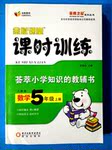
 金版课堂课时训练系列答案
金版课堂课时训练系列答案 单元全能练考卷系列答案
单元全能练考卷系列答案 新黄冈兵法密卷系列答案
新黄冈兵法密卷系列答案科目:高中英语 来源:不详 题型:阅读理解
查看答案和解析>>
科目:高中英语 来源:不详 题型:阅读理解
| A. | The history of money |
| B. | How people traded in the past |
| C. | The invention of paper money |
| D. | The use of coins around the world |
| A. | barley had always been used for exchanging |
| B. | only a few people knew how to trade with others |
| C. | salt was the most widely used item for exchanging |
| D. | many kinds of things were used for exchanging |
| A. | Around 1300 BC. | B. | Around 1000 BC. |
| C. | Around 700 BC. | D. | Around 640 BC. |
| A. | replaced | B. | changed |
| C. | accepted | D. | invented |
查看答案和解析>>
科目:高中英语 来源:不详 题型:阅读理解
查看答案和解析>>
科目:高中英语 来源:不详 题型:阅读理解
查看答案和解析>>
科目:高中英语 来源:不详 题型:阅读理解
查看答案和解析>>
科目:高中英语 来源:不详 题型:完形填空
 38 that I never dared ask strangers the way and so I used to 39 round in circles and hope that I would happen to get to the place I was heading for. I am 40 too shy to ask people for directions, but I often 41 replies that puzzle me. Often people do not like to admit that they didn’t know their hometown and will 42 on telling you the way, even if they do not know it ; others who are 43 to prove that they know their hometown very well, will give you a long 44 of directions which you cannot possibly hope to remember, and still others do not seem to be able to 45 between their left and their right and you find in the end that you are going in the 46 direction. If anyone ever asks me the way to somewhere, I always tell them I am a 47 to the town in order to avoid giving them wrong 48 but even this can have embarrassing (尴尬的) results. Once I was on my way to work when I was stopped by a man who asked me if I would 49 him the way to t
38 that I never dared ask strangers the way and so I used to 39 round in circles and hope that I would happen to get to the place I was heading for. I am 40 too shy to ask people for directions, but I often 41 replies that puzzle me. Often people do not like to admit that they didn’t know their hometown and will 42 on telling you the way, even if they do not know it ; others who are 43 to prove that they know their hometown very well, will give you a long 44 of directions which you cannot possibly hope to remember, and still others do not seem to be able to 45 between their left and their right and you find in the end that you are going in the 46 direction. If anyone ever asks me the way to somewhere, I always tell them I am a 47 to the town in order to avoid giving them wrong 48 but even this can have embarrassing (尴尬的) results. Once I was on my way to work when I was stopped by a man who asked me if I would 49 him the way to t he Sunlight Building. I gave my 50 reply, but I had not walked on a few steps when I 51 that he had asked for directions to my office building. However, at this point, I decided it was too late to turn back and 52 him in the crowd behind me 53 I was going to meet with someone at the office and I did not want to keep him waiting. Imagine my embarrassment when my secretary showed in the 54 man who had asked for directions to my office and his 55 when he recognized me as
he Sunlight Building. I gave my 50 reply, but I had not walked on a few steps when I 51 that he had asked for directions to my office building. However, at this point, I decided it was too late to turn back and 52 him in the crowd behind me 53 I was going to meet with someone at the office and I did not want to keep him waiting. Imagine my embarrassment when my secretary showed in the 54 man who had asked for directions to my office and his 55 when he recognized me as the person he had asked.
the person he had asked. B. common C. usual D. general
B. common C. usual D. general查看答案和解析>>
科目:高中英语 来源:不详 题型:完形填空
查看答案和解析>>
科目:高中英语 来源:不详 题型:阅读理解
| A.To lead us into a perfect world. | B.To let people enjoy the scenery. |
| C.To introduce an actual trip of his. | D.To compare it to our life’s journey. |
| A.Puzzled. | B.Happy. | C.Relaxed. | D.Impatient. |
| A.Regret and fear are responsible for the loss of today. |
| B.We must be careful of the two thieves: regret and fear. |
| C.regret and fear stop us from enjoying our present life. |
| D.We’re frequently challenged by the two : regret and fear. |
| A.To teach us a good lesson. | B.To tell us the right attitude to life. |
| C.To advice us to forget our worries. | D.To stop us wandering along the aisles. |
查看答案和解析>>
湖北省互联网违法和不良信息举报平台 | 网上有害信息举报专区 | 电信诈骗举报专区 | 涉历史虚无主义有害信息举报专区 | 涉企侵权举报专区
违法和不良信息举报电话:027-86699610 举报邮箱:58377363@163.com